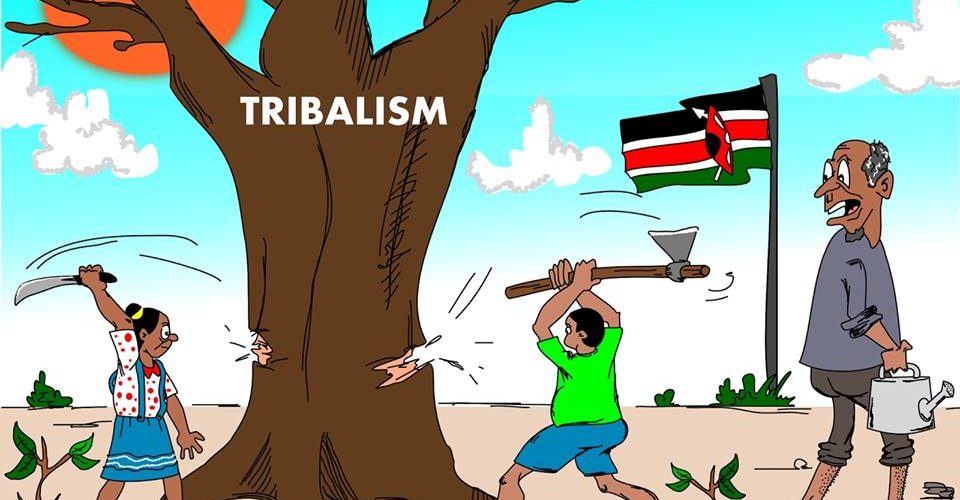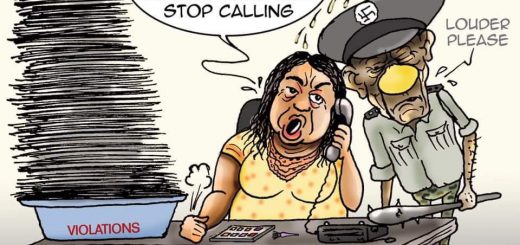Tribalism and nepotism in Employment in Uganda. Where are you from and who do you know? The need for diversity reporting by employers including the state.

In Uganda more than seventy five percent of the University graduates cannot find a job a year after graduation. As if this is not bad enough, jobs in both the private sector and public service are filled on the basis of nepotism, tribalism and patronage rather than competence. In Uganda it is common to find public offices and organizations where more than half of the employees come from the same tribe or region as the person in charge of hiring decisions. Given the tribal diversity of Uganda the probability that one of ten qualified individuals is from the same tribe as the hiring manager is very low. Therefore, the fact that it is common to find that most jobs are filled with relatives, friends and even children of the hiring manager is proof of wide spread tribalism and nepotism in Uganda. In some instances, the nepotism is so openly practiced that applicants are asked about their ancestry and connections during a formal interview to discover whether they’re from the right tribe or family. Under Section 13 of the Anti-Corruption Act, nepotism occurs where a person who being the holder of an office does any act in connection with the office for the purpose of doing favors (advantageous treatment) to any person on the basis of blood relations between that person and that other person commits an offence.
Nepotism and tribalism are very common in Uganda due to corruption and scarcity of unemployment opportunities. With the high prevalence of corruption, public officers end up prioritizing their family, friends and tribemates over competent individuals that are not related or connected to them. Even where it is not an issue of nepotism, corrupt public officers end up selling job openings to the highest bidder or fraudulently selling the same job to multiple individuals. Such corrupt conduct is possible because of the various tactics that are used to compromise the safe guards in place in both private and public bodies to ensure fairness and transparency and prevent both nepotism and tribalism. These techniques include:
- Job descriptions that are tailored to a specific candidate. Hiring Managers produce job descriptions and qualifications that are modelled around the qualifications and experience of a specific individual that the manager wants to fill the position. This tactic is meant to eliminate otherwise qualified persons that can compete with the preferred candidate. For example, the hiring manager can ensure that his or her preferred candidate has a certain certificate or diploma or training that few people have.
- Eliminating qualified candidates from the interview shortlist. Under such a scheme the hiring manager refuses to shortlist applicants that are considered a threat to the preferred candidate either due to their qualifications or experience.
- Leaking the interview questions to the preferred candidate. The most common technique that hiring Managers use to ensure the success of the preferred candidates is leaking the interview questions and expected answers to the preferred candidate. This allows the preferred candidate to score highly in the interviews and emerge as the successful candidate.
- Back door recruitment without advertising the position and forging the results for the required results. Under this tactic the hiring manager forgoes the compromised hiring process, recruits the preferred candidate and forges the short list and interview results.
- Recruiting the preferred candidate as a volunteer or intern thereby giving him or her incumbency in the role and an added advantage when the role is advertised and recruitment conducted. This gives the candidate access to panelists and enables the candidate to acquire relevant experience.
- Changing the marks of the preferred candidate and their interview assessment form. Where it is not possible to ensure the success of the preferred candidate by leaking interview questions, corrupt hiring managers change the marks and interview assessment forms of the preferred candidate to ensure that he or she emerges as the successful candidate. In circumstances where members of the oral interview panel are independent, corrupt hiring managers ensure that written tests are marked by a loyalist who awards marks that ensure that the preferred candidate emerges as the winner. Where this is not possible, the corrupt hiring manager eliminates the best candidates and offers the job to the preferred candidate regardless of the fact that she or he was beaten by many other candidates in the interviews.
- Compromising panelists. In such circumstances, organisations install interview panelists who are compromised either through bribery or other inducements to favor certain preferred candidates. This practice is common in District Service Commissions where jobs are sold even before interviews are conducted.
The consequence of compromising the recruitment process to hire family members, friends and acquittances include an incompetent and inefficient workforce that compromises service delivery. In public agencies compromised recruitments undermine public confidence in public offices as a result of the inefficiencies’ and corruption arising from employing persons on the basis of suspect considerations rather than merit and competency. Where recruitment is based on nepotism and tribalism it increases tribal divisions and rivalry as a result of increased perceptions of favoritism and discrimination on the basis of tribe.
Given the tribal diversity of Uganda which has more than fifty tribes, the fact that most public service positions are occupied by members of one tribe or region will surely increase tribal divisions that could one day lead to tribal wars and genocide. Tribal tensions lead to anger and hatred that breed divisions amongst Ugandans and lead to secessionist tendencies like those held by the Baganda and Bakoonjo. In Uganda there is a high public perception that is sometimes not accurate that in most government agencies, most positions are held by people from western Uganda. Though it is true that there are certain public agencies that are openly tribalistic such that most positions are held by tribemates, in most government agencies there is high tribal diversity. However members of the public just assume that public agencies have a disproportionate number of westerners because of the high tribalism perception in Uganda. The government of Uganda and public agencies do themselves no favors by failing to be transparent about the diversity of their work force. Maybe those in positions of power want to protect the few government agencies that are openly tribalistic in their recruitment and end up dragging all the diverse public agencies in the mud. Maybe it is true that government agencies have a disproportionate number of westerners within their ranks and therefore policy maker are scared of transparency because it would expose the truth.
In the circumstances government agencies, Non Government Organizations, Banks, NSSF and any organization with more than fifty employees should be required to report its tribal and gender diversity so as to ensure that they are not hiding behind privacy and similar considerations to engage in discrimination, tribalism and nepotism. a diversity report will incentivize transparent hiring processes by shaming those organizations that engage in tribalism and nepotism.
Read More
- Ideal Amendments that should be included in the Magistrates Courts Amendment Bill 2026 of Uganda
- President Yoweri Kaguta Tibihaburwa Museveni is a minority President voted by only 7,946,772 (36.7%) out of 21,649,608 eligible Ugandan voters in the 2026 Presidential Elections
- Four years of IGG Beti Kamya drowned the Inspectorate of Government (IG) deeper into oblivion and irrelevancy but it Can be redeemed
- The Proposal to Make Magistrates Grade Ones Chief Magistrates is an efficient use of resources that will improve service delivery in Uganda
- If Magistrates Courts in Uganda are less competent and more prone to corruption does it mean that the poor deserve inferior justice to the rich.


